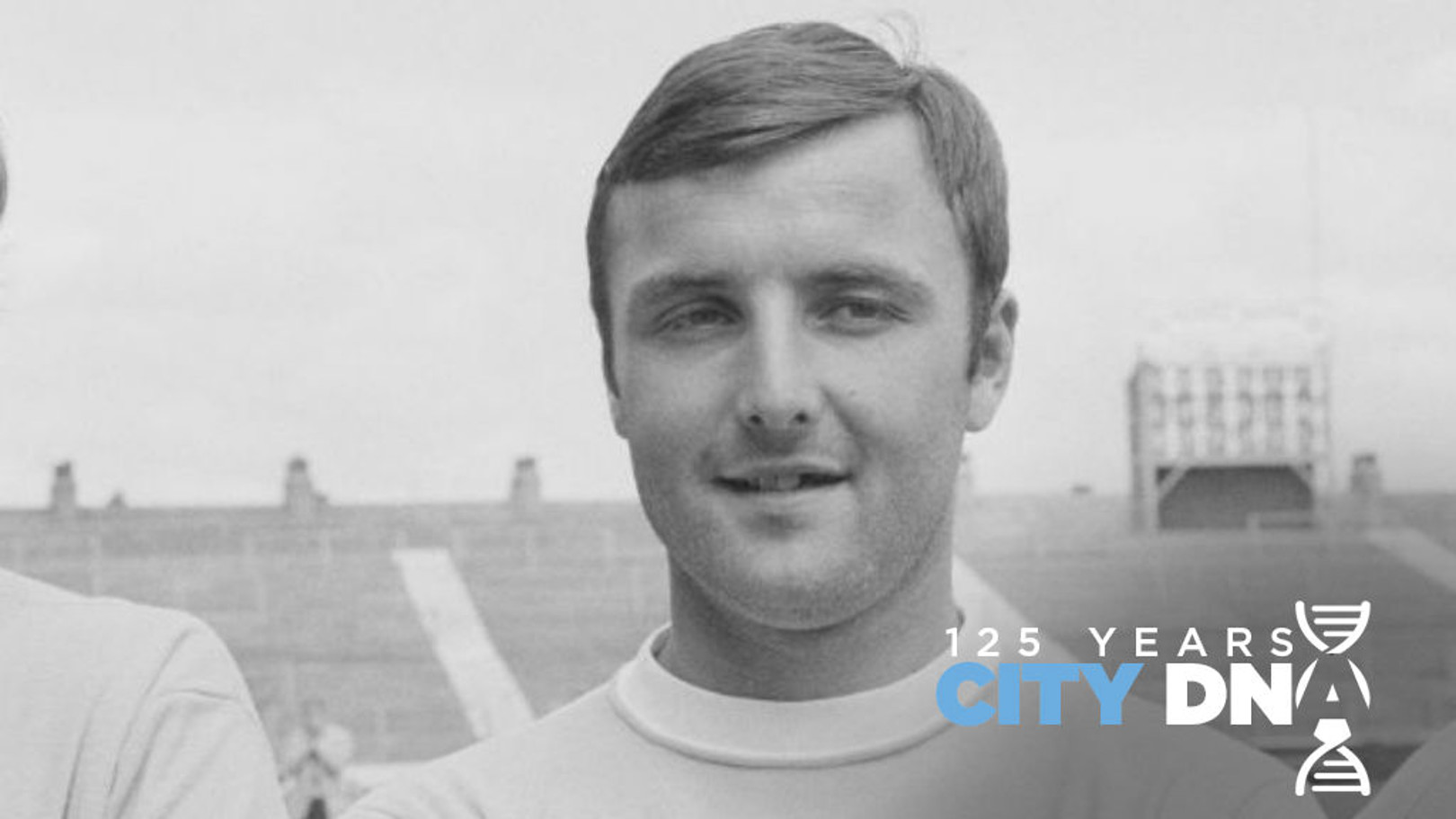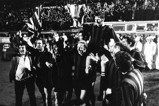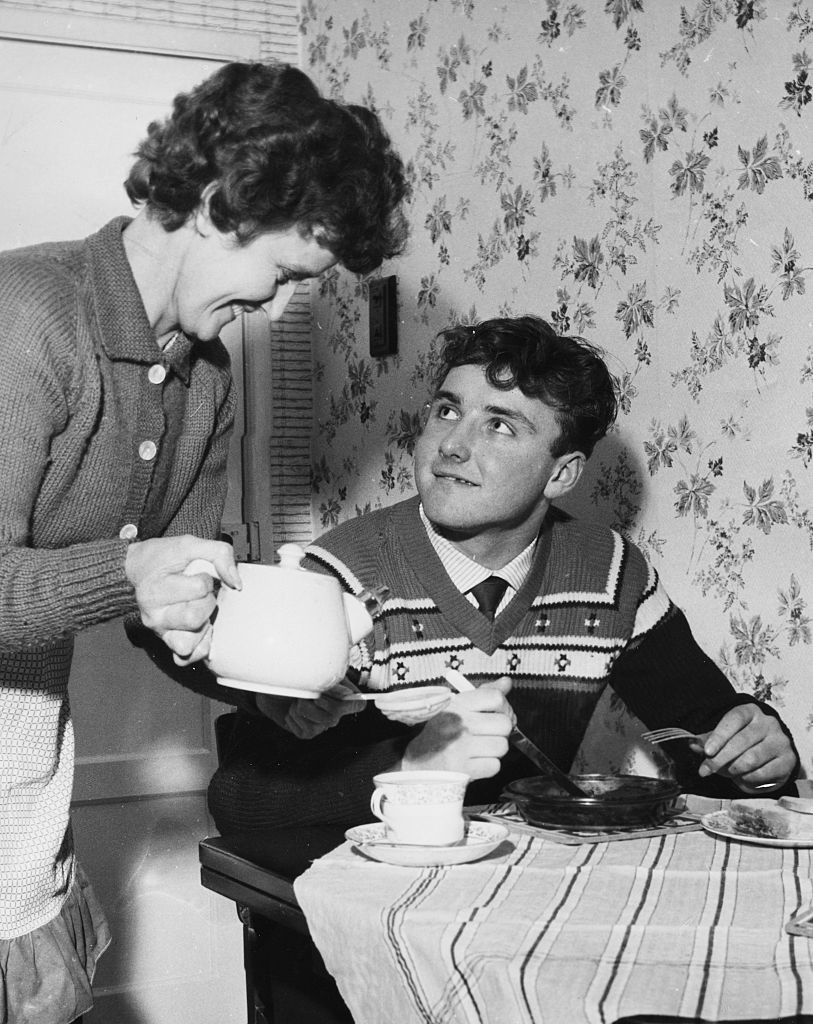What better time to pay tribute to Glyn with a City DNA special from 2020...?
“If you’re good enough, you’re old enough...”
That timeless phrase has resonated for generations – and never was it more apt than in the case of the late, great Glyn Pardoe.
Arguably, one of the unsung heroes of City’s iconic, golden era of the late 1960/early 1970s, the left back was the very personification of the ingredients that helped underpin that great side assembled by Joe Mercer and Malcolm Allison.
Of course, Glyn’s talent was without question.
Add to that his humble attitude, hard-working ethic, and willingness to always adapt to the needs of the team – and you had one serious player.
But Glyn, the cousin of Alan Oakes, another yeoman of City’s late 60s and early 70 guard, also carried a unique extra distinction that marks him out in the Club’s proud and distinguished history.
For the Cheshire-born defender, who sadly passed two years ago, established the notable honour of being the youngest player ever to represent the Club.
It’s a proud, remarkable record and one, given Pardoe’s extraordinary achievement, that is unlikely to be ever broken.
Incredibly, Glyn was just 15 years and 341 days old when he made his City bow against Birmingham City back on April 11th, 1962.
As occasions go, it wasn’t an especially auspicious one for a struggling City, with the visitors running out 4-1 victors at Maine Road.
But for a young Pardoe, it was a day he would never forget.
“Birmingham City, April 1962. Trevor Smith was their centre-half, and an England centre-half too, I remember that well,” Glyn recalled speaking in 2019.
“I didn’t do too bad actually. I thought I did alright, but we got hammered didn’t we?
“But, at that time, we were getting hammered lots so that doesn’t help!”
Holding the record was, justifiably, a source of immense pride for Pardoe.
And, not surprisingly, it is an achievement that he believes is unlikely to be ever surpassed.
“I think it’s brilliant, I think if you’re young enough, you’re good enough,” Pardoe added.
“It doesn’t matter how old you are. But I cannot see that record ever being beaten.
“I mean, I might be wrong, but I can’t see anybody playing in the first team at 15, simply because of the money side of it all, not the football side.
“You’re going to have to be some player.”
Such was Pardoe’s tender age when making his City bow, he was still only a schoolboy apprentice with the Club – with Glyn going on to make four appearances in total during his debut season.
Intriguingly during those formative years at the Club, Pardoe was largely deployed further up the field.
Both Les McDowall – the manager who afforded Glyn his City debut and his successor George Poyser – utilised the Winsford-born Pardoe as a striker.
It was to great effect too, with Pardoe notching up his fair share of goals for the common cause.
And initially under the stewardship of Joe Mercer with Malcolm Allison as visionary coach, Pardoe was again deployed as an attacking mainstay, allied to stints in midfield too.
Glyn’s efforts yielded nine league goals and saw him finish third in the City goal-scoring tally for the successful 1965/66 campaign which saw the Club win promotion back to the top flight.
But with City back in the first division, Pardoe’s transition to left back arrived in October 1966.
With regular full back Bobby Kennedy and his replacement David Connor injured, Pardoe, who had played at both half-back and centre-forward earlier in the season, was chosen as left back for a match against Tottenham Hotspur. He excelled and never looked back.
His performances in the position were so impressive that he played left back in all but two of the remaining matches that season.
Pardoe became a pivotal mainstay of Mercer and Allison’s glorious side that went on to win the league title, the FA Cup, the European Cup Winners Cup and the League Cup in the space of three seasons, with Glyn also scoring the extra time winner in our 2-1 Wembley win over West Brom in 1970.
But for a serious broken leg, sustained in a derby against Manchester United in December of that year, it’s highly likely he would have gone on to play for England.
And though he ultimately recovered from an injury so grave that at one stage there were fears he could potentially lose his leg, by the time Pardoe returned two years later his subsequent first team appearances were more limited.
That disappointment aside however, Pardoe enjoyed a wonderful City career, going on to make 380 appearances in total and scoring 22 times.
Such was his versatility; the only outfield position he didn’t play in being centre half.
“I’ve no regrets in football but I’d have loved to have played for my country,” Glyn reflected.
“I played for the schoolboys, the Under-23s, so it would have been fantastic, but it wasn’t meant to happen. I look at life and if it’s not meant to be, it’s not meant.
“I hold my hand up, I’ve been lucky. What a career I had, I mean how many people have won the trophies I’ve won?
“And played with the players I played with and against? I mean it was a fantastic era.”










